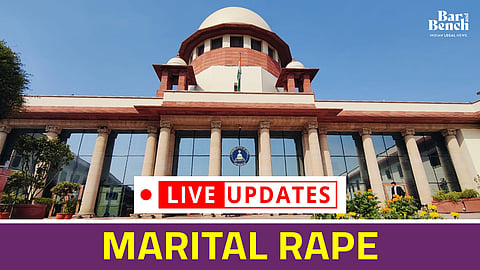- News
- Columns
- Interviews
- Law Firms
- Apprentice Lawyer
- Legal Jobs
- हिंदी
- ಕನ್ನಡ

The Supreme Court is hearing a batch of petitions that call for making marital rape a criminal offence. Presently, the Indian criminal law carves out an exception to the offence of rape if the alleged act is between spouses.
The Central government recently filed a counter affidavit opposing any court interference in the matter and stating that if at all marital offence is to be made a criminal offence, it is for the Parliament to take a call on this issue after considering inputs from all stakeholders.
The Centre's affidavit added that married women are already protected through other laws if they were to face such violence from their husbands, such as through laws against domestic violence and cruelty to married women.
The Central government further said that the idea of consent has to be viewed differently in a marriage since there is an expectation of reasonable sexual access from one's spouse within a marriage. It clarified that such expectations do not entitle a husband to coerce his wife to have sex against her will. However, it may be excessive and disproportionate to punish a man under anti-rape laws for such an act, the Centre said.
Track this page for live updates from the hearing today.